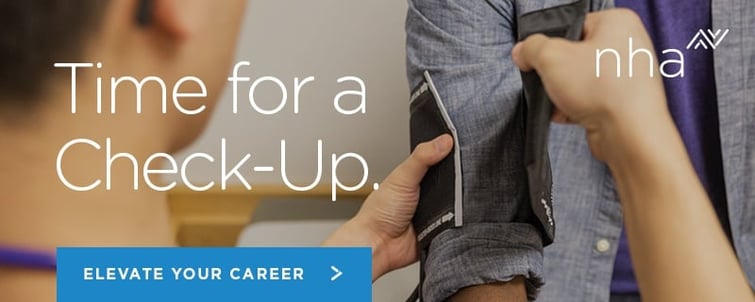Feedback is a tricky thing.
Oftentimes, people don't give honest feedback because they're too "nice" and fear they'll hurt our feelings.
Or, they'll give us honest feedback but our natural response is to be defensive. (We have some tips for that here.)

But if you really want to level-up your healthcare career, you need honest, insightful feedback from the people you work with every day.
Why bother asking for feedback?
Feedback is key to advancing (or just beginning) your career. Think about your co-workers. They have strengths and weaknesses, some of which you can see more clearly than they can. What if they knew what you saw as weaknesses and worked to turn them into their strengths? They would be easier to work with and would likely achieve more success.
Thinking about this as it relates to our co-workers helps us realize how impactful authentic feedback can be. You may really respect a co-worker, but you are still aware of ways they could improve. And they're aware of ways you could improve, too. It's not personal.
How do we ask for feedback?
Here are a few “dos” and a few “don’ts” from our free guide for leveling up your healthcare career to help inform your conversation.
DON’T take it personally...
DO accept critical feedback professionally
Constructive feedback at work is an opportunity for you to grow and learn. Try to remember, even if hearing a critique of your skills is uncomfortable, that it’s the best way to improve. Also, demonstrating to your supervisor that you have the professional maturity to hear that feedback and act on it can build trust and confidence.
DON’T make excuses...
DO look for solutions
When receiving critical feedback, or being called out for an error, our gut reaction can be to get a little bit defensive. If you find yourself in that situation, try pausing, take a deep breath, and actively listen to that feedback. Instead of immediately thinking about reasons a problem is “not my fault” help offer a solution.
Maybe the solution is a way you could have prevented something that you can work on for next time. Maybe the solution is how a problem could be fixed from where you are now. Could you have asked for more help? Could you have made sure you fully understood the instructions before starting? Did you need to start a task sooner? Take better notes? Leave home a few minutes earlier so you have plenty of time to get set up once you’re at work?
Ultimately you are the only one responsible for your performance at work — but that is good news! Because it is your responsibility you are also empowered to change how you react to improve your professional performance.
DON’T expect instant feedback
DO set aside time to talk to your supervisor
If you’ve just started a new job or have set intervals for assessment, it’s ok to at least ask to check-in earlier. Explain in a positive way why you want feedback. After all, your goal is to ensure patient safety and give the best patient care possible. Getting feedback — and implementing changes — demonstrates your commitment to those goals and your desire to achieve great things in your career.
Ready for a Career Checkup?
Download Our Free Guide
If you're ready to take that next step in your healthcare career, you need the real feedback your co-workers and supervisors might be too "nice" to share with you. Download our free guide to discover how to get that valuable insight, respond with grace and use it to achieve your career goals.
The guide also includes a self-assessment and a worksheet to help you create an actionable plan to propel your career!


